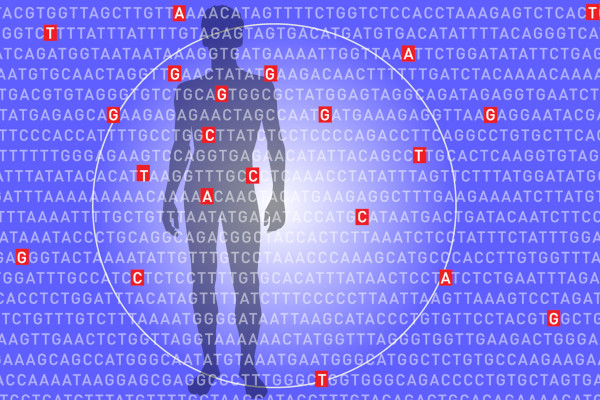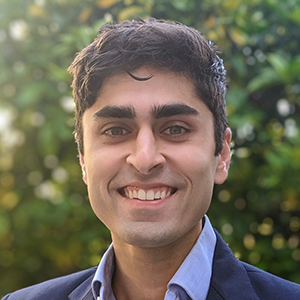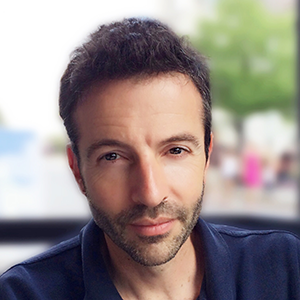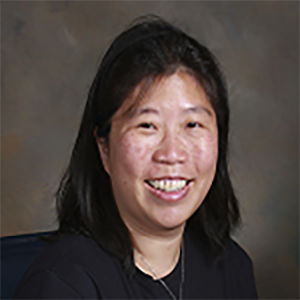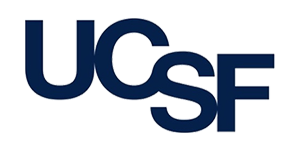Polygenic (based on multiple genes/DNA variants) predictions for disease risk and drug response are at the forefront of recent regulatory challenges in precision medicine. Challenges in deployment range from their increased complexity, their clinical actionability, and ethical challenges when a large portion of the input data come from biased subpopulations.
Session Chair Profile
Biography
Atray co-founded Coral after finishing his graduate work in 2018 with a mission of understanding and reducing variability in therapeutic response for all patients. In his role, he works with a diverse team and key external stakeholders in the healthcare system. In Aviv Regev’s lab at the Broad Institute, he focused on developing novel methods for high throughput genetic screening. In 2016, he led a team to develop Perturb-seq, a technology which allows genetically encoded perturbations (like CRISPR edits) to be screened using single cell RNA-seq. Atray also developed new methods to enable large combinatorial screens such as Shuffle-seq. He translated the big data skills learned through these projects during a brief externship at Apple’s Applied Machine Learning division. Atray received an B.S.E. in Mechanical and Aerospace Engineering from Princeton University in 2012 and his Ph.D. in Health Sciences and Technology from MIT in 2018.
Speaker Profile
Biography
His research focuses on the discovery and translation of pharmacogenomic biomarkers to address the hypothesis that tailoring drug therapy on the basis of genomic information can improve health outcomes. He has chosen some of the most commonly used medications used worldwide – antiplatelet and statin medications – for his research. As Director of the VA PHarmacogenomics Action for cancer SuRvivorship(PHASeR) program, he is leading the VA’s implementation of pre-emptive, panel-based, pharmacogenetic testing to up to 250,000 Veterans.
Speaker Profile
Biography
Ms. Loomis leads the Emerging Portfolio team in Pfizer’s Target Sciences group. She is responsible for ensuring human-based evidence, including large-scale genetic association data and electronic health records, are leveraged for discovery and development of first in class therapeutic hypotheses. During her 13 years with Pfizer, she helped drive the integration of human genetics and population-based data into drug discovery programs across multiple therapeutic areas. She actively collaborates with industry and academic leaders around the world focused on bringing the best science to the field of human genetics for drug discovery. Current research interests include studying extreme phenotypes in humans to identify high confidence targets for diseases with unmet medical need, as well as integrating large-scale genetic, biomarker and clinical data to enable precision and personalized medicine approaches in chronic complex diseases.
Speaker Profile
Biography
Charles Paulding joined Regeneron in 2013 and is currently leading the pharmacogenomics group at the Regeneron Genetics Center. His team is responsible for developing and implementing pharmacogenomic strategies for a wide range of clinical development programs at Regeneron. Charles received his BA in biology from Tufts University and his Ph.D. in genetics from Harvard University (Biological and Biomedical Sciences Program) while working in the laboratory of Dr. Daniel Haber at the Massachusetts General Hospital. Prior to joining Regeneron, Charles worked at Millennium Pharmaceuticals in the translational medicine group, and also at Novartis as head of the pharmacogenetic analysis group. While at Novartis Charles led a group that performed analysis on a range of pharmacogenetic projects across a number of therapeutic areas.
Speaker Profile
Biography
Dr. Lee-may Chen is the Division Director and Program Director for the UCSF/KPSF Gynecologic Oncology Fellowship Program. She is deeply committed to education and improving the outcomes of gynecologic cancer care. Since 2008, I have been the director of the UCSF Gynecologic Cancer Risk Program. With a strong collaboration between the Cancer Genetics and Prevention Program and the Department of Pathology, we have long been interested in identifying at-risk individuals and families for hereditary cancer syndromes. The decision for risk-reducing surgery is fraught with unknowns and anxiety for patients. By studying patient centered outcomes, we are better able to counsel women and personalize their decision making.We are also working closely with the Medical Center on their Perioperative Pathway Program. By creating a surgical pathway for open & minimally invasive surgery cases, we have been able to reduce hospital length of stay and decrease costs without compromising patient satisfaction. Surgical pathways also proves a robust platform to teach quality improvement, and we have integrated medical students, residents, and fellows into various performance improvement projects (opiate disposal, bowel prep) along the patients’ journey.






